
English Harbour: A Nautical Paradise in Antigua
Nestled on the southern coast of Antigua, English Harbour is a gem of the Caribbean. Known for its rich maritime history and stunning natural beauty, this harbour town offers a unique blend of culture, adventure, and relaxation. The historic Nelson's Dockyard is a UNESCO World Heritage site and serves as a living museum, where visitors can explore restored 18th and 19th-century buildings, learn about the harbour's naval history, and enjoy the vibrant atmosphere of a working dockyard. The scenic beauty of English Harbour is unparalleled. The turquoise waters and lush green hills provide a picturesque backdrop for a range of outdoor activities. From sailing and yachting to hiking and exploring the nearby Shirley Heights, there is something for every type of traveler. The views from Shirley Heights are especially breathtaking, offering panoramic sights of the harbour and beyond, particularly enchanting during the famous Sunday night parties with live music and local cuisine. For those seeking a more relaxed experience, the beaches near English Harbour are some of the best in Antigua. Pigeon Point Beach and Galleon Beach offer soft white sands and crystal-clear waters, perfect for swimming, snorkeling, or simply unwinding under the Caribbean sun. The local restaurants and bars provide a taste of Antiguan hospitality, with fresh seafood dishes and tropical cocktails that are sure to delight your palate.
Local tips in English Harbour
- Visit Nelson's Dockyard early in the day to avoid crowds and fully enjoy the historic site.
- Hike up to Shirley Heights for sunset; it's the best time to capture stunning photos and enjoy the Sunday evening festivities.
- Try the local seafood at the harbour-side restaurants for an authentic taste of Antiguan cuisine.
- Pack reef-safe sunscreen to protect both your skin and the delicate marine life.
- Rent a car to explore the surrounding areas and beaches at your own pace.
English Harbour: A Nautical Paradise in Antigua
Nestled on the southern coast of Antigua, English Harbour is a gem of the Caribbean. Known for its rich maritime history and stunning natural beauty, this harbour town offers a unique blend of culture, adventure, and relaxation. The historic Nelson's Dockyard is a UNESCO World Heritage site and serves as a living museum, where visitors can explore restored 18th and 19th-century buildings, learn about the harbour's naval history, and enjoy the vibrant atmosphere of a working dockyard. The scenic beauty of English Harbour is unparalleled. The turquoise waters and lush green hills provide a picturesque backdrop for a range of outdoor activities. From sailing and yachting to hiking and exploring the nearby Shirley Heights, there is something for every type of traveler. The views from Shirley Heights are especially breathtaking, offering panoramic sights of the harbour and beyond, particularly enchanting during the famous Sunday night parties with live music and local cuisine. For those seeking a more relaxed experience, the beaches near English Harbour are some of the best in Antigua. Pigeon Point Beach and Galleon Beach offer soft white sands and crystal-clear waters, perfect for swimming, snorkeling, or simply unwinding under the Caribbean sun. The local restaurants and bars provide a taste of Antiguan hospitality, with fresh seafood dishes and tropical cocktails that are sure to delight your palate.
When is the best time to go to English Harbour?
Iconic landmarks you can’t miss
Heritage Quay Complex
Experience Antigua's culture at Heritage Quay: duty-free shopping, local crafts, Caribbean flavors, and waterfront views await!
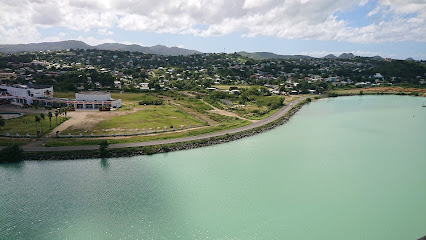
Nelson's Dockyard
Explore the rich history and stunning views at Nelson's Dockyard, a UNESCO World Heritage site in Antigua, perfect for history buffs and nature lovers alike.
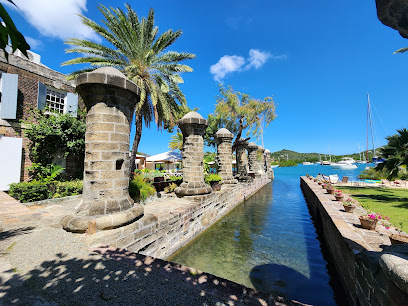
Shirley Heights Lookout
Experience the stunning vistas, delicious Caribbean cuisine, and vibrant atmosphere at Shirley Heights Lookout in English Harbour.
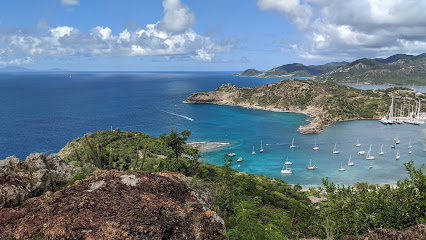
Devil's Bridge National Park
Explore the breathtaking beauty and historical significance of Devil's Bridge National Park in Antigua, a must-visit destination for nature lovers and history buffs.
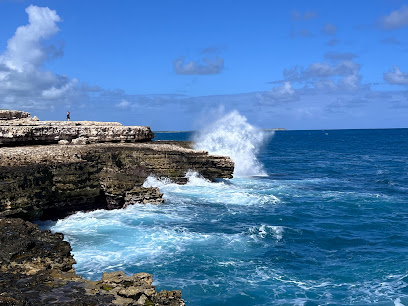
Galleon Beach
Discover the serene beauty of Galleon Beach, a public paradise in Antigua offering sun, sand, and sea adventures for every traveler.
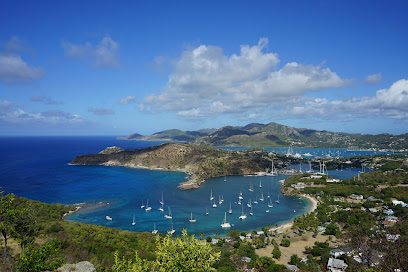
Pigeon Point Beach
Discover Pigeon Point Beach: Antigua's pristine shores with soft sands, vibrant culture, and endless activities await every traveler seeking paradise.
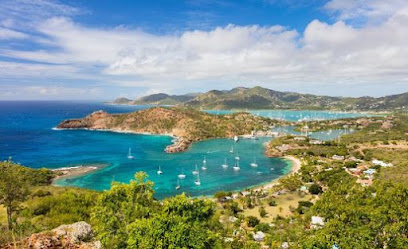
The Blockhouse
Explore the historic Blockhouse at Shirley Heights, where breathtaking views and rich history converge in Antigua's stunning landscape.
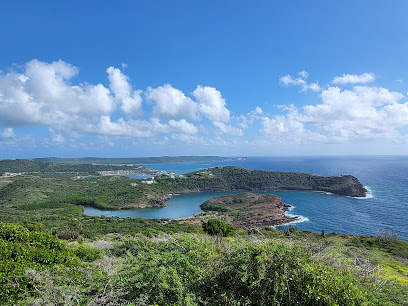
VC Bird Monument
Discover the VC Bird Monument in St. John's, a poignant symbol of Antigua's history and independence, surrounded by vibrant local life and beautiful landscapes.
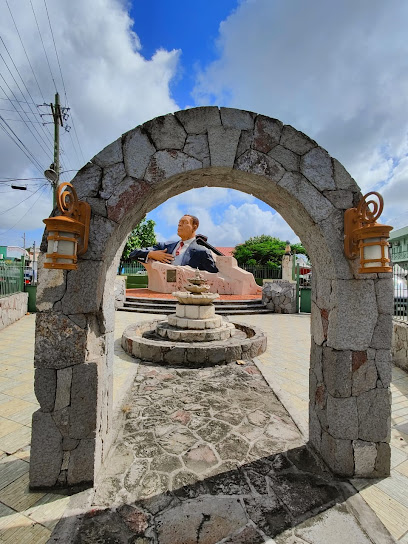
Museum of Antigua and Barbuda
Explore Antigua and Barbuda's history and culture in St. John's oldest building, with exhibits from geology to independence.
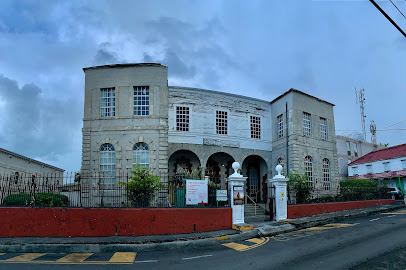
Dow's Hill Interpretation Centre
Discover the historical treasures and breathtaking views at the Dow's Hill Interpretation Centre in Antigua's Nelson's Dockyard National Park.
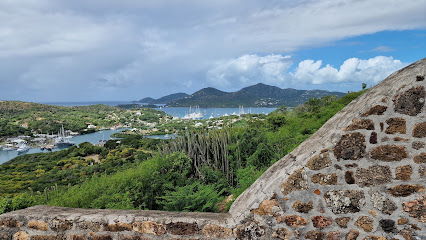
Trappas
Experience international cuisine with Caribbean flair at Trappas Bar and Restaurant in the heart of English Harbour, Antigua.
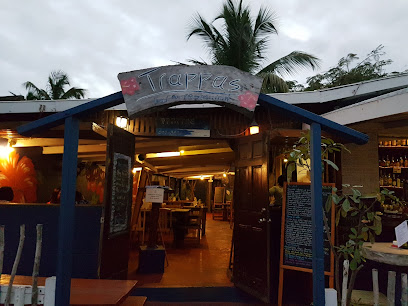
Fort James
Discover the historical significance and stunning views of Fort James, a must-visit landmark in St. John's, Antigua.
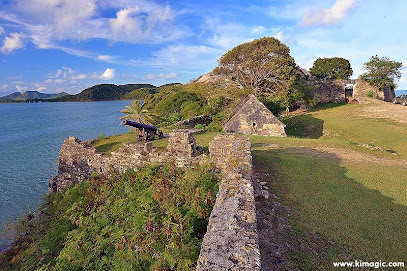
Flatties Flame Grill
Experience the vibrant flavors of the Caribbean at Flatties Flame Grill in English Harbour, where every meal is a celebration of local cuisine.

Betty's Hope Historic Sugar Plantation
Explore the historical significance of Betty's Hope Historic Sugar Plantation, a captivating glimpse into Antigua's rich colonial past and sugar production legacy.
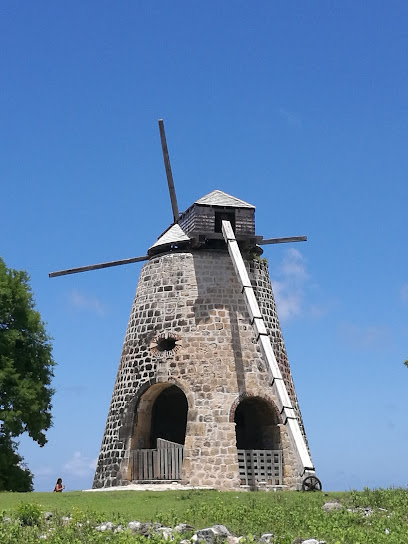
South Point | Antigua
Discover the elegance of South Point in Antigua, where luxury meets breathtaking views and exceptional dining experiences await.

Unmissable attractions to see
Nelson's Dockyard
Explore Antigua's naval past at Nelson's Dockyard, a UNESCO site with Georgian architecture, a working marina, and stunning views of English Harbour.
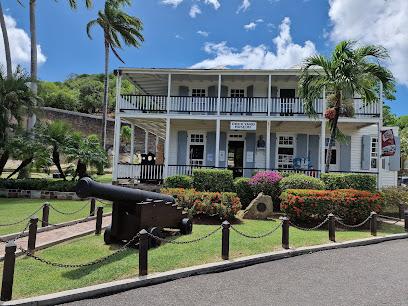
Stingray City Antigua
Swim with gentle stingrays in their natural Caribbean habitat for an unforgettable marine adventure in Antigua.
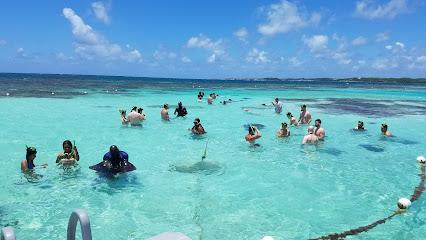
Devil's Bridge National Park
Witness nature's power at Devil's Bridge National Park, a site of stunning beauty and poignant history on Antigua's rugged Atlantic coast.
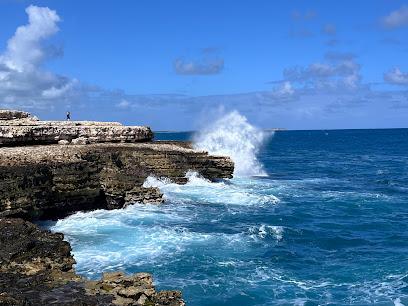
Sir Vivian Richards Stadium
Home to cricket in Antigua, named for a legend, and host to international matches and events.
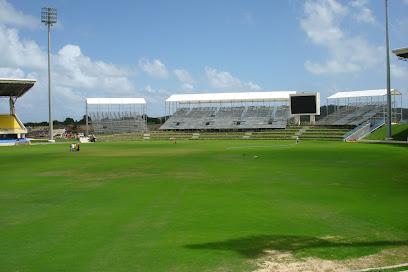
Galleon Beach
Discover tranquility at Galleon Beach in Antigua: calm waters, scenic views, and a perfect escape for relaxation and exploration.
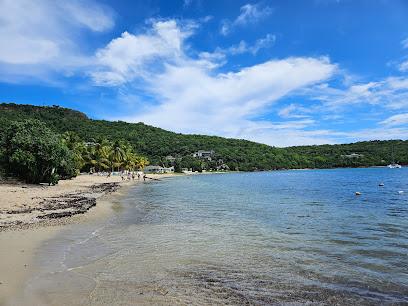
Pigeon Point Beach
Discover Antigua's serene Pigeon Point Beach: Calm waters, white sands, and stunning harbor views await in this Caribbean paradise.
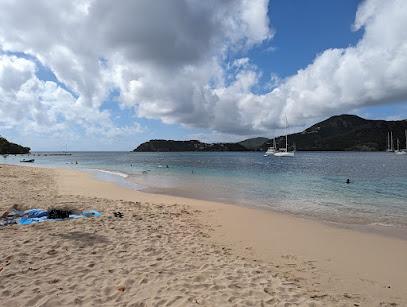
The Blockhouse
Explore The Blockhouse in Piccadilly, Antigua: a historic fortress with stunning coastal views and a glimpse into the island's past.
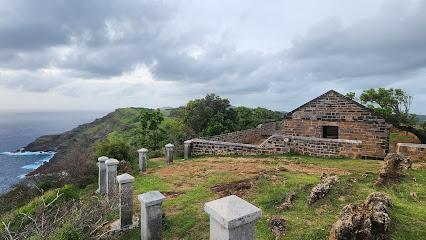
Dickenson Bay Beach
Experience the quintessential Caribbean allure at Dickenson Bay: pristine sands, tranquil waters, and vibrant beachfront vibes await!
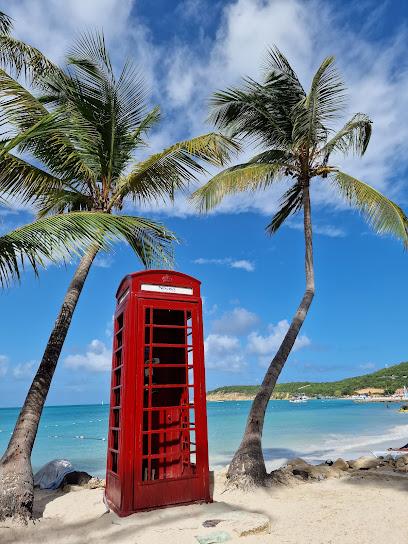
Long Bay Beach
Discover Long Bay Beach: Soft white sands, calm turquoise waters, and vibrant marine life await on Antigua's stunning east coast.
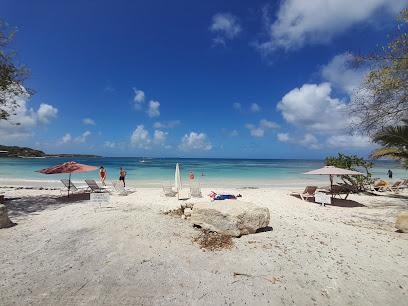
Museum Of Antigua & Barbuda
Explore Antigua and Barbuda's history and culture in a beautifully preserved 18th-century courthouse in St. John's.
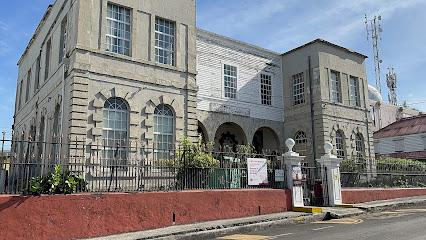
Half Moon Bay Beach
Discover Antigua's Half Moon Bay Beach: A tranquil escape with soft sands, turquoise waters, and stunning natural beauty near Freetown.
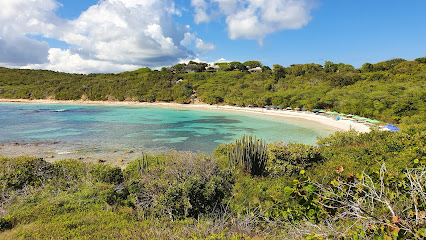
Betty's Hope Historic Sugar Plantation
Explore Betty's Hope, Antigua: A historic sugar plantation offering a glimpse into the island's colonial past and the lives of its people.
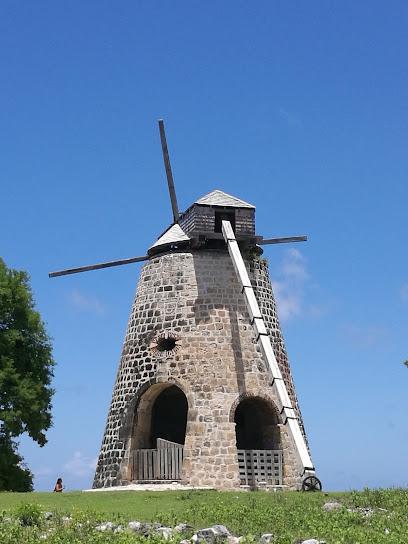
Saint John's Cathedral
A historic Anglican cathedral in St. John's, Antigua, showcasing resilience and neo-Baroque architecture after multiple rebuilds.
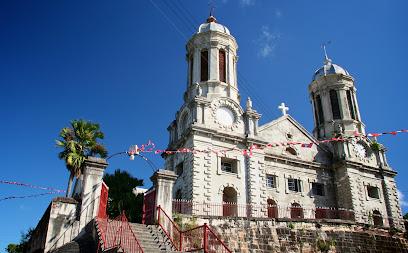
Dow's Hill Interpretation Centre
Explore Antigua's captivating history and panoramic views at Dow's Hill Interpretation Centre, a must-see in Nelson's Dockyard National Park.
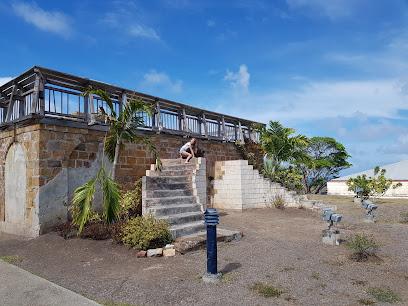
Darkwood Beach
Escape to Darkwood Beach in Antigua: Pristine sands, calm turquoise waters, and breathtaking island views await. Your tranquil Caribbean getaway.

Essential places to dine
Shirley Heights Lookout
Discover breathtaking views at Shirley Heights Lookout in English Harbour – where scenic beauty meets vibrant Caribbean culture.
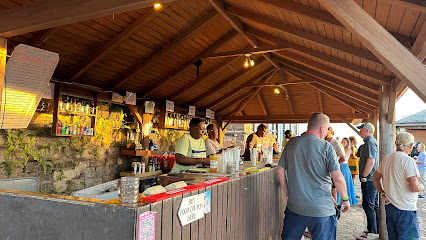
Sweet-Ts
Discover Sweet-Ts in Piccadilly: A delightful dining destination offering authentic local flavors in a vibrant atmosphere.
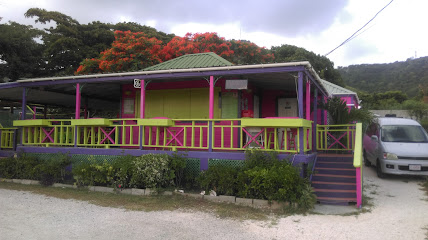
Ana's On The Beach
Discover culinary delights at Ana's On The Beach in Antigua - where exquisite flavors meet breathtaking ocean views.
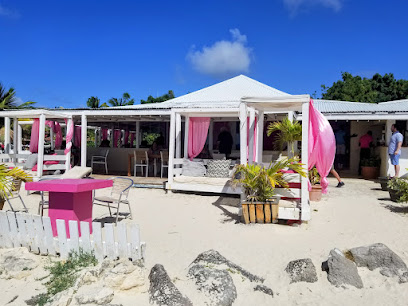
Sheer Rocks
Discover exquisite tapas and stunning ocean views at Sheer Rocks, a fine dining gem on Ffryes Beach.
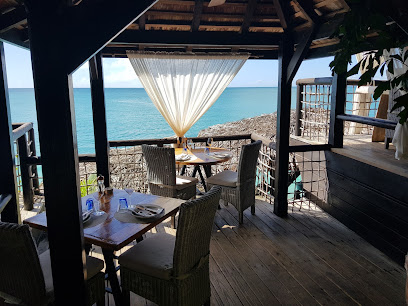
The Nest -Beach Bar, Antigua
Discover delicious grilled cuisine at The Nest Beach Bar in Antigua - your ultimate seaside dining experience.
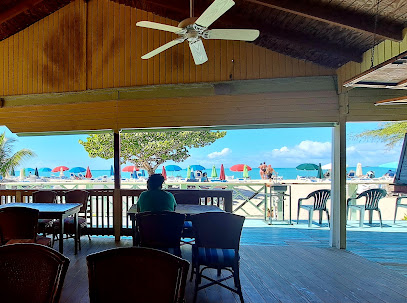
Catherines Café
Experience authentic French cuisine at Catherines Café in Piccadilly - where every meal is a delightful escape into culinary bliss.
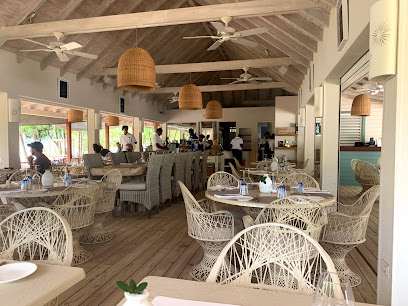
Trappas
Experience authentic Caribbean flavors at Trappas – where every meal is a celebration of local culture.
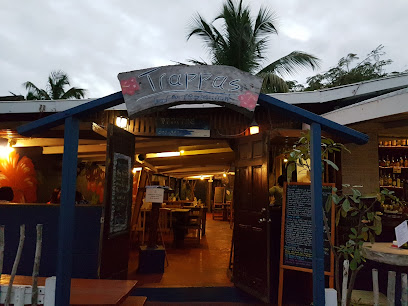
Cloggy's
Discover exquisite Caribbean dining at Cloggy's in Falmouth – where fresh flavors meet stunning marina views.
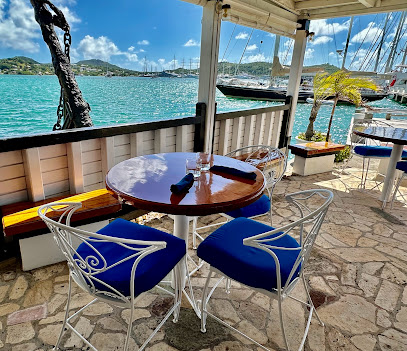
Flatties Flame Grill
Discover authentic Caribbean flavors at Flatties Flame Grill—your destination for flame-grilled delights in beautiful English Harbour.
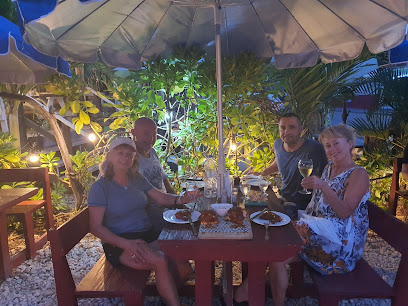
Paparazzi Pizzeria & Bar
Experience the best Italian cuisine with stunning views at Paparazzi Pizzeria & Bar in English Harbor, Antigua.
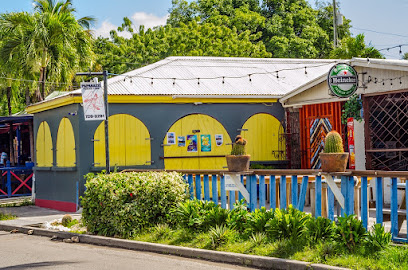
Club House
Experience the best sushi in Falmouth at Club House – where fresh flavors meet stunning views.
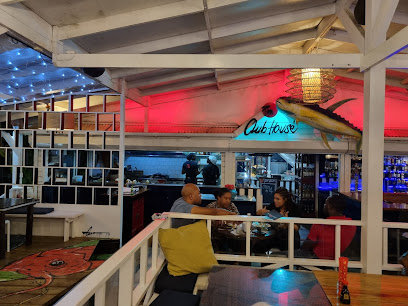
South Point | Antigua
Experience Caribbean charm at South Point in Antigua—where gourmet dining meets vibrant lounge life against stunning marina views.

Abracadabra
Discover Abracadabra: A fusion of exquisite Italian cuisine and vibrant nightlife in the heart of English Harbour.
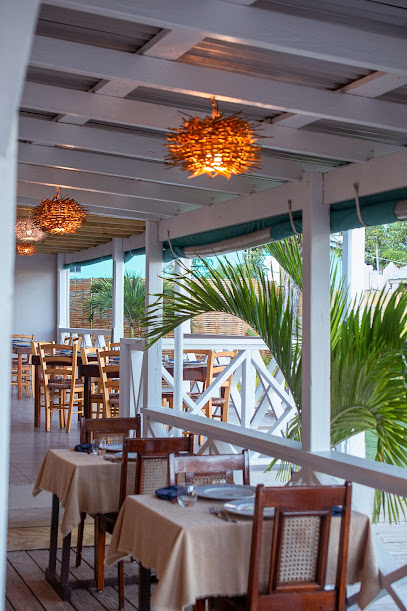
Boom Restaurant
Experience exquisite local flavors at Boom Restaurant in English Harbour - where stunning views meet culinary excellence.
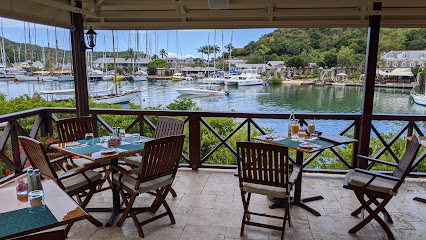
Indian Summer
Experience vibrant flavors and authentic Indian cuisine at Indian Summer on Dockyard Drive in Antigua.
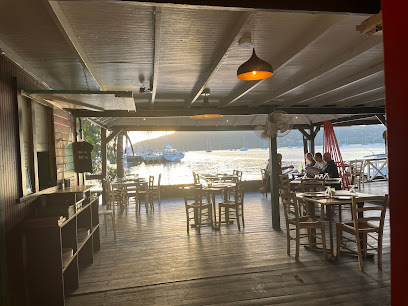
Markets, malls and hidden boutiques
The Covent Garden Supermarket
Discover local flavors and Caribbean delights at The Covent Garden Supermarket in English Harbour, your go-to spot for fresh produce and gourmet treats.
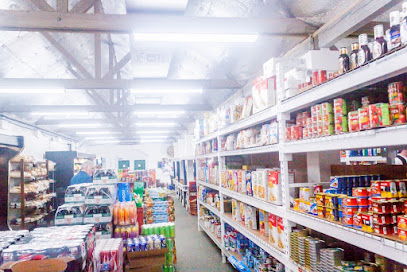
Exotic Antigua
Explore the vibrant styles of Exotic Antigua, where local fashion meets Caribbean charm in the heart of St. John's.
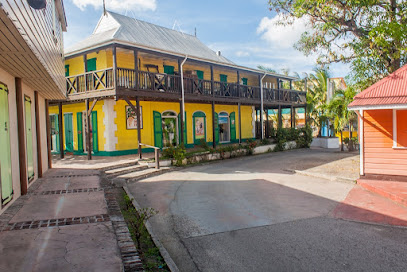
Budget Marine Antigua English Harbour
Discover the ultimate marine supply store in English Harbour, Antigua, for all your nautical needs and enjoy great prices and expert service.
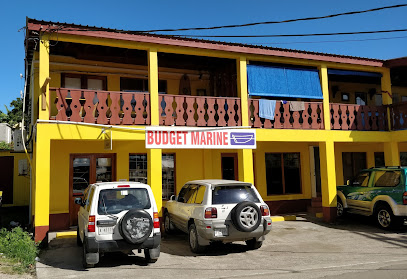
Can i Talk Mobile
Experience seamless connectivity at Can I Talk Mobile, your go-to destination for all mobile needs in English Harbor, Antigua.
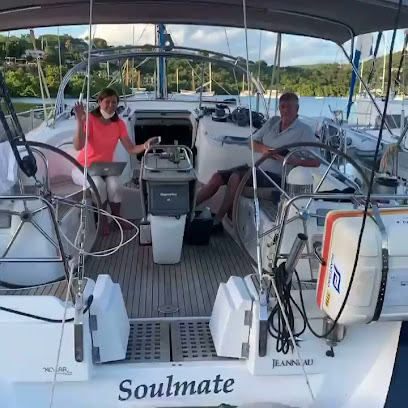
The Posh Pirate Antique Store
Discover unique treasures at The Posh Pirate Antique Store in Liberta, where history and charm come together in a delightful shopping experience.
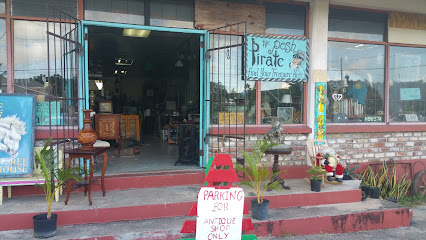
The Cork & Basket
Explore The Cork & Basket, Antigua's premier wine store for exquisite wines and gourmet foods in a picturesque marina setting.
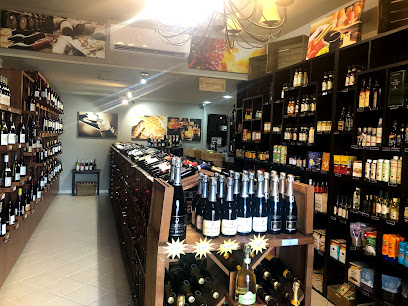
Sea Island Trading Antigua
Discover unique home goods that celebrate Antigua's culture at Sea Island Trading, a charming store in St. John's.
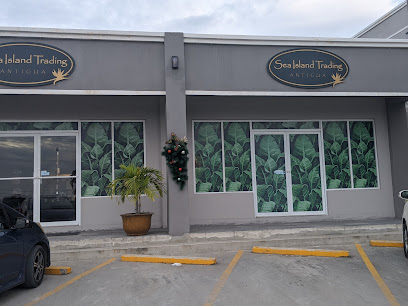
Genny Supermarket
Discover local flavors and essentials at Genny Supermarket, a charming grocery store located on Dockyard Drive in the heart of the harbor.
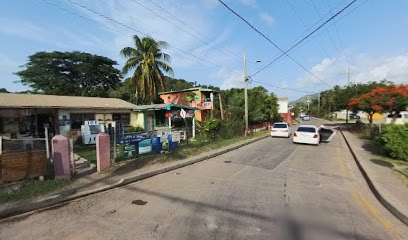
The Cotton House
Discover the vibrant styles and unique craftsmanship of the Caribbean at The Cotton House, your go-to clothing store in Cobbs Cross.
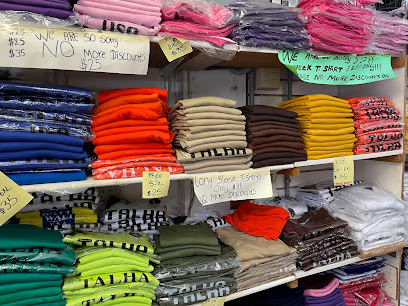
North Sails Antigua
Explore North Sails Antigua: Your go-to destination for top-quality marine supplies and sailing expertise in the heart of the Caribbean.
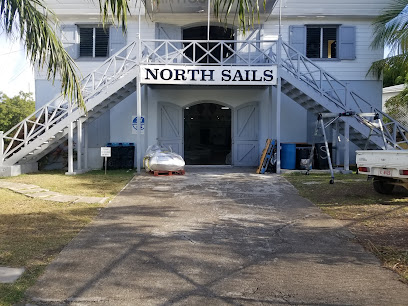
Dockyard Pharmacy Plus
Experience a blend of health and history at Dockyard Pharmacy Plus, nestled in the heart of Antigua's historic Nelson's Dockyard.
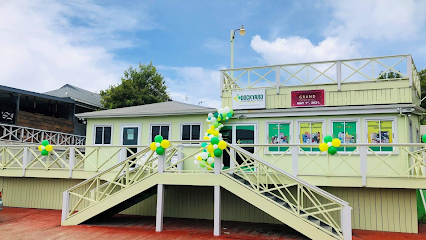
Dockyard Bakery
Experience the delightful flavors of Dockyard Bakery, where every bite is a testament to artisanal baking on Dockyard Drive.
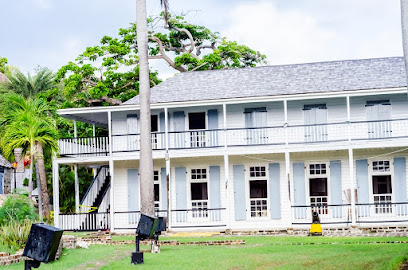
Rhythm of Blue Art Gallery
Explore the Rhythm of Blue Art Gallery in English Harbour, where local artistry meets vibrant culture in a stunning collection of Caribbean art.
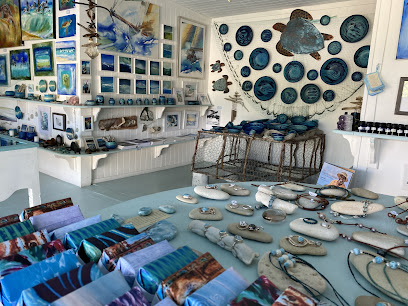
Britt Shop Aeropuerto Antigua
Explore the Britt Shop at Antigua's V.C. Bird International Airport for unique gifts, delicious chocolates, and a taste of local culture.
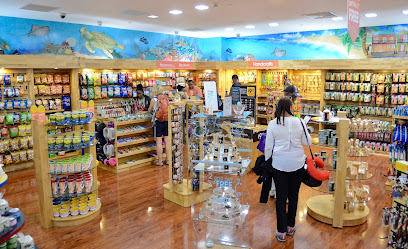
Bold Fashion Boutique
Explore Bold Fashion Boutique in English Harbour for unique clothing and accessories that elevate your style while enjoying a personalized shopping experience.
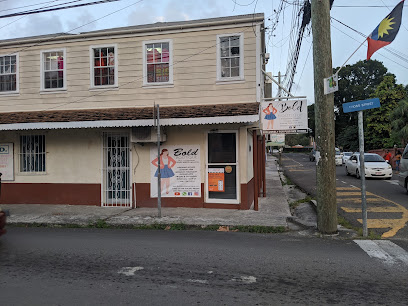
Essential bars & hidden hideouts
Boom Restaurant
Experience the flavors of the Caribbean at Boom Restaurant, a culinary treasure nestled in the picturesque Nelson's Dockyard, Antigua.
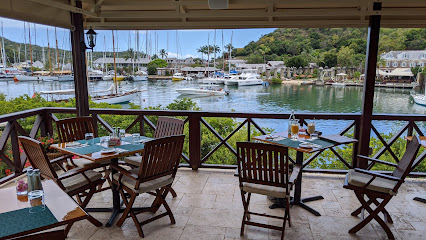
Incanto
Experience authentic Italian cuisine at Incanto, a stunning waterfront restaurant in English Harbour, Antigua, perfect for food lovers and travelers alike.
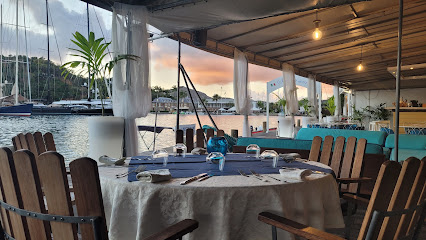
Colibri Bistro Bar Lounge
Discover a culinary oasis at Colibri Bistro Bar Lounge, where exquisite flavors meet a tranquil atmosphere on Antigua's Dockyard Drive.
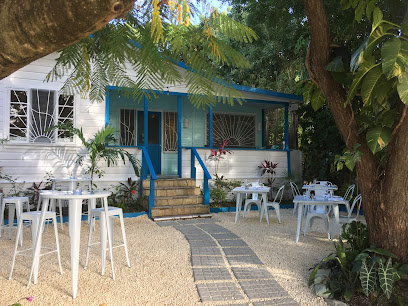
La Brasserie d'Antigua
Experience the best of French cuisine with a Caribbean twist at La Brasserie d'Antigua, where exquisite flavors meet stunning harbor views.
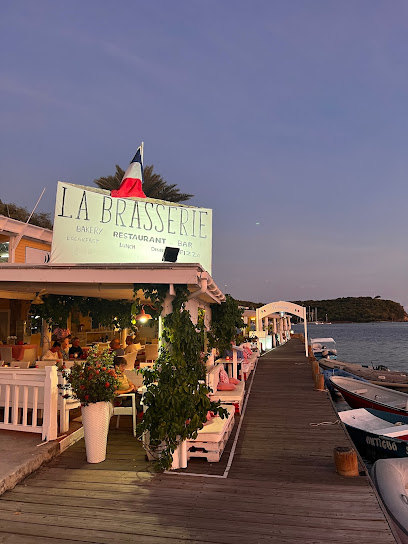
Loose Cannon Beach Bar
Experience exquisite dining and vibrant cocktails at Loose Cannon Beach Bar on Galleon Beach, where the Caribbean meets culinary excellence.
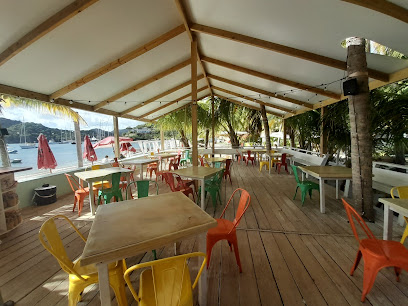
Skullduggery's Cafe
Discover the vibrant atmosphere and diverse drink offerings at Skullduggery's Cafe, the perfect bar in Piccadilly for relaxation and socializing.
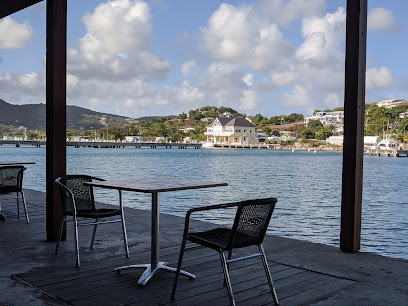
Garrot Blacks Bar & Lounge
Experience the vibrant nightlife at Garrot Blacks Bar & Lounge, where local charm meets delicious drinks in the heart of English Harbour.
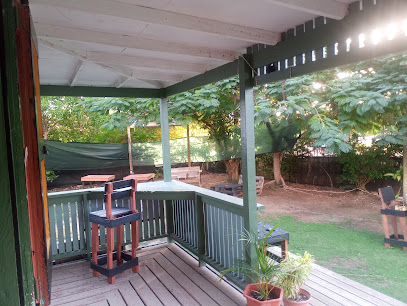
Lucky Eddi's Antigua Sports Bar and Restaurant
Enjoy Caribbean flavors and lively entertainment at Lucky Eddi's Antigua Sports Bar and Restaurant in English Harbour.
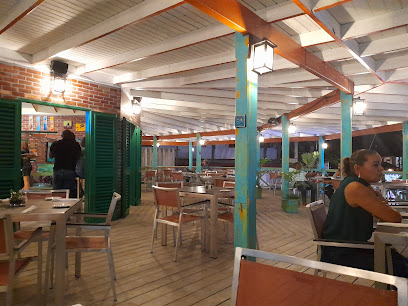
BAR-B'S RESTAURANT & BAR
Experience the best of Caribbean cuisine at Bar-B's Restaurant & Bar, where local flavors meet stunning views in a vibrant setting.
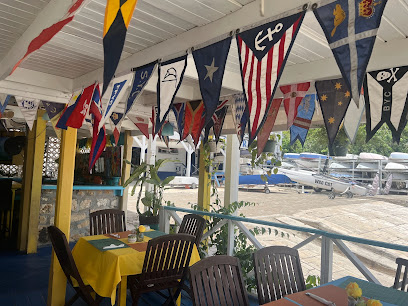
The Galley Bar
Experience the flavors of the Caribbean at The Galley Bar, a serene dining destination overlooking Nelson's Dockyard Marina.
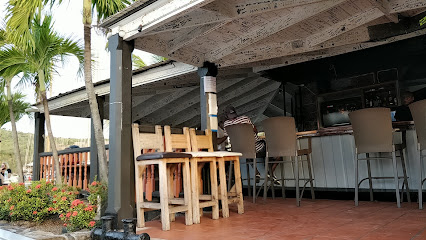
The Lime
Discover the vibrant nightlife of Antigua at The Lime Lounge in English Harbour, the ultimate spot for cocktails and fun.
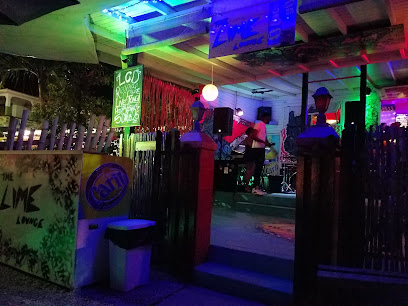
Lite N Eze Bar & Restaurant
Experience the best of Caribbean cuisine with stunning views at Lite N Eze Bar & Restaurant in English Harbour.
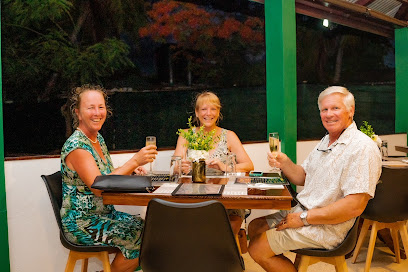
That's Life
Discover the vibrant flavors of the Caribbean at That's Life, a premier grill in Falmouth Harbour offering delectable dishes in a picturesque setting.
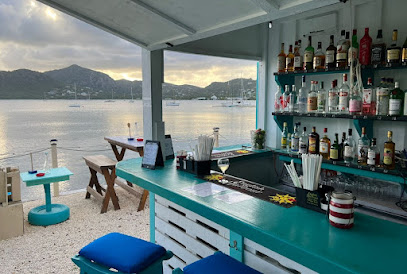
Roquita
Discover the vibrant flavors of the Caribbean at Roquita, a delightful tapas bar in English Harbour, perfect for sharing with friends.
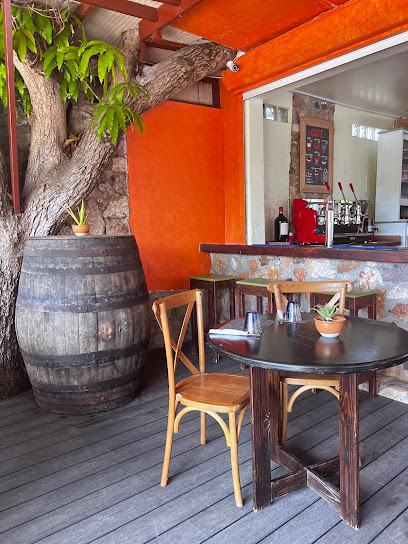
Local Phrases
-
- HelloWadadli
[wa-dad-lee] - GoodbyeLeh we meet agen
[lay we meet ah-gen] - YesYes
[yes] - NoNoh
[no] - Please/You're welcomePreez
[preez] - Thank youTank yu
[tank you] - Excuse me/SorrySarry
[sah-ree] - How are you?How yu duh?
[how you doo?] - Fine. And you?Irie. An yu?
[eye-ree. an you?] - Do you speak English?Yu speak Ingglish?
[you speak ing-glish?] - I don't understandMi nah unastan
[mee nah un-ah-stand]
- HelloWadadli
-
- I'd like to see the menu, pleaseLemme see de menu, pliz
[leh-mee see dee menu, pleez] - I don't eat meatMi nuh eat meat
[mee noo eet meet] - Cheers!Cheers!
[cheers] - I would like to pay, pleaseLemme pay, pliz
[leh-mee pay, pleez]
- I'd like to see the menu, pleaseLemme see de menu, pliz
-
- Help!Help!
[help] - Go away!Go weh!
[go way] - Call the Police!Call de Police!
[call dee police] - Call a doctor!Call a doctah!
[call a dock-tah] - I'm lostMi loss
[mee loss] - I'm illMi sick
[mee sick]
- Help!Help!
-
- I'd like to buy...Mi waan buy...
[mee wahn buy...] - I'm just lookingMi jus lookin
[mee just look-in] - How much is it?How much fuh dis?
[how much fuh diss?] - That's too expensiveDat too much money
[dat too much mun-ee] - Can you lower the price?Yu cud drop de price?
[you could drop dee price?]
- I'd like to buy...Mi waan buy...
-
- What time is it?Wah time it be?
[wah time it bee?] - It's one o'clockIt one o'clock
[it one o'clock] - Half past (10)Haaf pass ten
[haff pass ten] - MorningMawnin
[mawn-in] - AfternoonAftanoon
[af-tah-noon] - EveningEvenin
[even-in] - YesterdayYestadeh
[yes-ta-deh] - TodayTuhday
[tuh-day] - TomorrowTammaro
[tam-mar-oh] - 1One
[wun] - 2Two
[too] - 3Tree
[tree] - 4Fo'
[foh] - 5Fi'
[fie] - 6Six
[siks] - 7Seven
[sev-en] - 8Eight
[ate] - 9Nine
[noin] - 10Ten
[ten]
- What time is it?Wah time it be?
-
- Where's a/the...?Weh de...dey deh?
[way dee...day day] - What's the address?Wah de address deh?
[wah dee address day] - Can you show me (on the map)?Yu cud show me (pan de map)?
[you could show me (pan dee map)] - When's the next (bus)?Wen de nex' (bus) comin'?
[wen dee nex' (bus) come-in] - A ticket (to ....)A tikkit (to ....)
[a ticket (to ....)]
- Where's a/the...?Weh de...dey deh?
History of English Harbour
-
English Harbour's strategic location on the southern coast of Antigua made it a crucial naval base for the British during the 18th and 19th centuries. The natural deep-water harbour provided a perfect sanctuary for ships and a defensive stronghold against rival European powers and pirates.
-
Named after Admiral Horatio Nelson, who was stationed in the Caribbean during the late 1700s, Nelson's Dockyard is the only continuously working Georgian dockyard in the world. This historical site, now a UNESCO World Heritage site, served as the headquarters of the British Royal Navy's Leeward Islands fleet. Visitors can explore restored buildings, including the Admiral's House and the Copper and Lumber Store, which offer a glimpse into the naval life of the era.
-
During the Napoleonic Wars (1803-1815), English Harbour played a pivotal role in maintaining British naval superiority in the Caribbean. The dockyard became a critical repair and resupply station for British ships, ensuring the fleet's readiness for battle against French forces. The harbour's contribution to Britain's eventual victory in the Caribbean theatre was significant.
-
After the end of the Napoleonic Wars, English Harbour's importance waned, and the dockyard was closed in 1889. The area fell into disrepair until the mid-20th century when restoration efforts began, led by preservationists and the Antigua government. Today, Nelson's Dockyard has been meticulously restored, preserving its historical integrity while serving as a vibrant cultural and tourist hub.
-
English Harbour is not just a historical site but also a cultural epicenter. The annual Antigua Sailing Week, one of the premier sailing regattas in the world, attracts sailors and visitors globally. The dockyard comes alive with music, dance, and local cuisine, reflecting the rich cultural tapestry of Antigua and Barbuda.
-
Located within Nelson's Dockyard, the Museum of Antigua and Barbuda offers an in-depth look into the island's history, from pre-Columbian times to the present. Exhibits include artifacts from the Arawak and Carib peoples, colonial-era relics, and displays on the slavery and sugar plantation era. The museum provides a comprehensive understanding of the island's complex and multifaceted history.
English Harbour Essentials
-
English Harbour is located on the southern coast of Antigua, one of the two main islands of Antigua and Barbuda. The nearest international airport is V.C. Bird International Airport in St. John's, approximately 20 kilometers away. From the airport, you can take a taxi or rent a car to reach English Harbour, which typically takes around 30 minutes by road. Some hotels also offer shuttle services. Public buses run from St. John's to English Harbour, but they can be infrequent and crowded.
-
English Harbour is a small area, and many of its attractions are within walking distance. For longer trips, local taxis are readily available and relatively inexpensive. Public buses operate within the area and connect to nearby towns and villages. Car rentals are also a convenient option for exploring the island at your own pace. Some visitors opt to rent scooters or bicycles as a fun way to get around.
-
The official currency in Antigua and Barbuda is the Eastern Caribbean Dollar (XCD), although US dollars are widely accepted. Credit cards are accepted in most hotels, restaurants, and shops in English Harbour. ATMs are available in the area, but it's advisable to carry some cash for small purchases and tips. Currency exchange services are available at the airport and in major towns.
-
English Harbour is generally a safe destination for tourists. However, like any travel destination, it is advisable to take standard precautions. Avoid walking alone at night in secluded areas and keep an eye on your belongings in crowded places. While English Harbour doesn't have specific high-crime areas targeting tourists, it's always best to stay vigilant and aware of your surroundings. Stick to well-lit and populated areas, especially during nighttime.
-
In case of emergency, dial 911 for immediate assistance. The local police station and medical facilities are available in English Harbour. It is recommended to have travel insurance that covers medical emergencies. For minor health issues, there are pharmacies in the area where you can purchase over-the-counter medications. Hotels and resorts often have information on local emergency contacts and nearest medical facilities.
-
Fashion: Do dress comfortably and appropriately for the warm climate. Swimwear should be reserved for beaches and pools, and modest attire is appreciated in public spaces. Religion: Do respect local customs and places of worship. Remove hats and cover your shoulders when visiting churches. Public Transport: Do be courteous and patient when using public transport. It's common to greet the driver and other passengers. Greetings: Do greet people with a friendly 'hello' or 'good day.' Handshakes are common, but a warm smile goes a long way. Eating & Drinking: Do try local delicacies and seafood. Always accept food and drink offerings graciously. Don't eat or drink in public transport.
-
To experience English Harbour like a local, visit the local markets where you can buy fresh produce and traditional Antiguan goods. Engage with locals, as they are often friendly and willing to share stories about the area's history and culture. Don't miss the Dockyard Museum at Nelson's Dockyard, a UNESCO World Heritage Site. For a unique experience, attend the Sunday evening party at Shirley Heights, which offers stunning views and live music.
Trending Landmark in English Harbour
-
Heritage Quay Complex
-
Nelson's Dockyard
-
Shirley Heights Lookout
-
Devil's Bridge National Park
-
Galleon Beach
-
Pigeon Point Beach
-
The Blockhouse
-
VC Bird Monument
-
Museum of Antigua and Barbuda
-
Dow's Hill Interpretation Centre
-
Trappas
-
Fort James
-
Flatties Flame Grill
-
Betty's Hope Historic Sugar Plantation
-
South Point | Antigua
Nearby Cities to English Harbour
-
Things To Do in Falmouth
-
Things To Do in Liberta
-
Things To Do in All Saints
-
Things To Do in Freetown
-
Things To Do in Codrington
-
Things To Do in Bolands
-
Things To Do in Jolly Harbour
-
Things To Do in St. John's
-
Things To Do in Dickenson Bay
-
Things To Do in Woodlands
-
Things To Do in Gingerland
-
Things To Do in Newcastle
-
Things To Do in Charlestown
-
Things To Do in Cotton Ground
-
Things To Do in Basseterre







